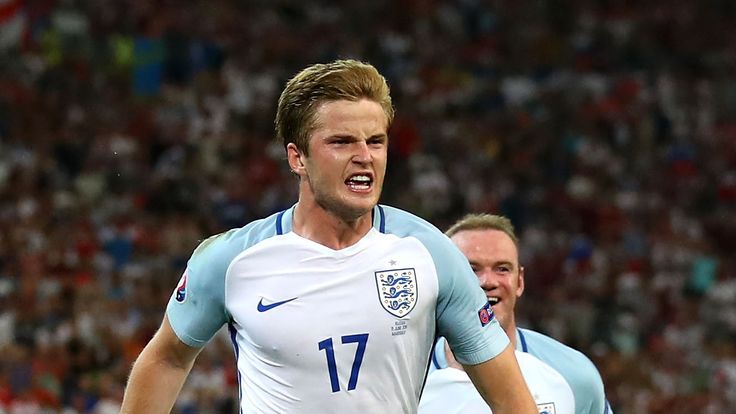
Friday 24 June 2016 10:43, UK
The Euro 2016 group stages have come and gone, but how did some of the highly regarded young players perform?
Having bid goodbye to eight of the competition's teams, attention now turns to the knockout stages of the tournament, but among the competition's highs and lows, how have some of the pre-tournament potential gems got on?
We take a look at five who have impressed so far this summer…
Eric Dier (England)
Perhaps already one of the biggest success stories of England's tournament, 22-year-old Dier has made the defensive midfield role his own.
One of just four players to have played every minute for the Three Lions, the protective screen he provides to his centre-halves gives his fellow midfielders the confidence to push forward, secure in the knowledge the defensive line isn't over-exposed.
He's chipped in offensively too. His thunderous free kick against Russia broke the deadlock in a game that was beginning to slip away from Hodgson's side.
Though never truly challenged by the opposition in Group B, his performances have still made it clear that he will be an imperative component if England are to reach the latter stages of the tournament, where far stronger teams will await them.
Alvaro Morata (Spain)
Morata did little in the opening game to justify the exclusion of more experienced players such as Diego Costa and Fernando Torres in what proved to be laboured 1-0 win over a toothless Czech Republic.
With a point to prove against Turkey, the striker did not disappoint, scoring twice to repay the faith shown in him by manager Vicente del Bosque.
His first, a deft header into the far corner, oozed composure, whilst his second, a tap-in to round off a 22-pass move, demonstrated his ability to spearhead his team's attacking moves - getting into the right place to seal a comfortable 3-0 victory.
Another goal followed in his side's surprise 2-1 defeat against Croatia.
If Spain are to win the trophy for a third consecutive time, he will need to sustain his potency against the bigger sides they are likely to face, starting with Italy on Monday.
Granit Xhaka (Switzerland)
A new addition at Arsenal, the midfielder has impressed in the tournament so far.
Though not a huge attacking threat, his poise in possession, coupled with his clinical passing, will have pleased Arsene Wenger, who paid in the region of £30m to bring him to north London on a five-year deal last month.
By half-time against France, the 23-year-old had already made 48 passes, double that of any opponent, and it's clear to see how his style could fit in at the Gunners.
The key midfield man for his country, his side's progression from the last 16 will doubtless require him to deliver a strong performance against Poland.
Paul Pogba (France)
Disappointing displays in his country's warm-up games meant Pogba was already a marked man coming into the competition, a status his first two matches confirmed.
Rated just a 3/10 by L'Equipe following France's opener against Romania, he was benched for the Albania game, with a hint of make-or-break about his reinstatement ahead of the match with Switzerland.
Sufficiently spurred on, the Juventus midfielder began in blistering style, hitting the woodwork twice in the first half and proving a regular focal point for his side's attacking moves.
Reports concerning what France's best XI is have been widespread lately, but after a slow start, 23-year-old Pogba finally made a strong case for his inclusion moving forward. His manager Didier Deschamps emphasised his high regard for the former Manchester United man, saying: "Paul was the life-force of the first half, the heart and soul… he has huge potential and I have a lot of confidence in him."
Dele Alli (England)
Many would cite Alli's failure to replicate his pre-tournament form as something of a disappointment.
However, when you consider that barely twelve 12 months ago Tottenham's protege was lining up in League One, three appearances and an assist isn't a bad return from a 20-year-old player who still has fewer than 10 caps.
A subdued display against Russia was bettered by a sturdier one in the match with Wales, where his renewed willingness to probe from midfield ultimately yielded Sturridge's injury-time winner.
That he is yet to play in his preferred role, behind a central striker, is further reason to be optimistic about the 20-year-old's chances of making a mark in this competition. He must seek to take the lead when it comes to being a creative force in middle third - something which he has already proven capable of, despite his relative inexperience.
If he can do that, then he is likely to be pivotal to England's Euro charge.